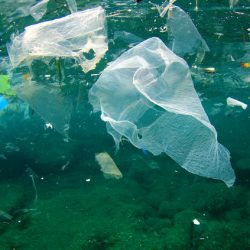Are you guilty of wishcycling? Me, too.
What is wishcycling? It’s when you’re not sure if something is recyclable, but you really want it to be, so you throw it in the recycling bin and cross your fingers.
Plastics, all sorts of plastics, top my wishcyclable list. I feel so guilty buying them. I’d like all of them to find new, happy lives over and over again.
While in theory many plastics could be recycled, there is simply no market for them. It is cheaper, and easier, to produce new plastic. And with no incentive to use recycled material, corporations opt for the most cost-effective solution. That’s why only 9% of all plastics ever produced have been recycled. The estimated weight of all plastic ever produced is now greater than the weight of all land and marine animals combined. And only 9% of that weight has been recycled.

Folks, we’ve created a mess. (We’ll do more on plastics in a future post.)
While the statistic is grim, recycling is still a noble endeavor. And there are many materials such as aluminum, glass, and paper that find very happy, fulfilling next lives. And some plastics can be reused—just not nearly the amount that the plastic lobbyists would have you believe. So for the products that can be recycled, and for the people and machinery that do the sorting, we need to do our part to keep everything moving smoothly. This will help keep recycling costs down, making the end products more viable. And since recycling programs usually come out of tax payer pockets, it may help all of us save money in the long run.
Outside Online recently ran an article by Kristin Hostetter about the worst/most damaging wishcycled items. She interviewed several people in the recycling industry to get their opinions and came up with a list of sixteen common offenders, included below in an abbreviated version. If you have time though, read her full article. It’s very entertaining!
- Plastic silverware—not recyclable and gums up the sorting machines, forcing a work stoppage until someone can clean it out.
- Shredded or small pieces of paper (this was a surprise to me)—they aren’t really sortable and stick to other items, degrading the value of the other items.
- Chip bags—not recyclable because they’re made of a combination of foil, plastic, and laminated paper, which is expensive to separate.
- Vape pens—lithium ion batteries do not belong in a recycling center and have actually caused fires in the facilities.
- Pots and pans (people really throw pots and pans in the recycling bin??)—they aren’t recyclable and do a number on the sorting machines.
- Bubble mailers—the all-plastic versions can go with your plastic grocery bags back to the collection bins at the grocery stores—not in the recycling bin. But the paper/plastic combo mailers are simply trash.
- All types of batteries—there is no type of battery that should be dropped into a recycling bin.
- Plastic straws—not recyclable and make a mess at the facilities because they fall through the sorting machines.
- Food encrusted containers—only because they attract rodents. Just clean out the peanut butter and it will be fine.
- Styrofoam—not recyclable!!
- Ropes and hoses (again, people really throw these things into the recycling bin??)—not only are they not recyclable, but they really gum up the sorters.
- Solo cups—no matter how much we want them to be, they are not recyclable. There is no end market for their type of plastic.
- Old clothing—goes to Goodwill, not the recycling bin.
- Compostable take-out containers (I am guilty of this one)—it turns out that “compostable” does not mean “recyclable.” When they get mixed into bales of other plastics, they degrade the value of the entire bale.
- Paper milk and juice cartons, as well as ice cream containers—it’s another paper/plastic combo which makes recycling expensive.
- Plastic bags—this is a big one. MRFs (material recovery facilities) can not recycle these and they gum up the machinery badly. Please don’t even use them to bag your recyclables (guilty of this, too). Plastic bags go in the trash or in the grocery store collection bin.
(Spoiler alert—lithium ion batteries, because of their propensity to catch fire, were by far the most loathed wishcycled item, according to the panel.)
While we can all pat ourselves on the back by recycling the correct way, still by far, the best options for our future are to refuse, reduce, and reuse.
Information for this post came from:
This Bracket Ranks the Worst in Your Recycling Bin by Kristin Hostetter
Trash or Recycling? Why Plastic Keeps Us Guessing. by Winston Choi-Schagrin and Hiroko Tabuchi
What Do Plastic Recycling Symbols Actually Mean? Decoding Plastics #1 – #7 by Rachel Felous
PLASTIC RECYCLING IS A LIE by Lauren Lightcap
Delaware Solid Waste Resources
